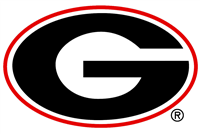What do they do?
Review individual applications for insurance to evaluate degree of risk involved and determine acceptance of applications.
Also known as:
Account Underwriter, Automobile and Property Underwriter, Commercial Lines Underwriter, Commercial Underwriter, Health Underwriter, Insurance Underwriter, Life Underwriter, Personal Lines Underwriter, Underwriter, Underwriting Consultant
-
-5.9%
Change
Ranks #51 in job growth rate370Job Openings
Ranks #8 in net job growth
-
Carnegie Mellon University
Pittsburgh, PA
-
University of Georgia
Athens, GA
-
Drexel University
Philadelphia, PA
-
Temple University
Philadelphia, PA
-
St. John's University-New York
Queens, NY
Looking for colleges that offer a specific major? Use the College Match Tool to find your best-matched schools and discover your estimated Net Price!
- Doctorate or Professional Degree (2%)
- Master's degree (9%)
- Bachelor's degree (50%)
- Associate's degree (8%)
- Some college, no degree (18%)
- High school diploma equivalent (11%)
- Less than high school diploma (1%)
People in this career often have these skills:
- Reading Comprehension - Understanding written sentences and paragraphs in work-related documents.
- Active Listening - Giving full attention to what other people are saying, taking time to understand the points being made, asking questions as appropriate, and not interrupting at inappropriate times.
- Writing - Communicating effectively in writing as appropriate for the needs of the audience.
- Critical Thinking - Using logic and reasoning to identify the strengths and weaknesses of alternative solutions, conclusions, or approaches to problems.
- Speaking - Talking to others to convey information effectively.
- Judgment and Decision Making - Considering the relative costs and benefits of potential actions to choose the most appropriate one.
People in this career often know a lot about:
- English Language - Knowledge of the structure and content of the English language including the meaning and spelling of words, rules of composition, and grammar.
- Customer and Personal Service - Knowledge of principles and processes for providing customer and personal services. This includes customer needs assessment, meeting quality standards for services, and evaluation of customer satisfaction.
People in this career often have talent in:
- Written Comprehension - The ability to read and understand information and ideas presented in writing.
- Written Expression - The ability to communicate information and ideas in writing so others will understand.
- Inductive Reasoning - The ability to combine pieces of information to form general rules or conclusions (includes finding a relationship among seemingly unrelated events).
- Oral Expression - The ability to communicate information and ideas in speaking so others will understand.
- Oral Comprehension - The ability to listen to and understand information and ideas presented through spoken words and sentences.
- Deductive Reasoning - The ability to apply general rules to specific problems to produce answers that make sense.
- Problem Sensitivity - The ability to tell when something is wrong or is likely to go wrong. It does not involve solving the problem, only recognizing that there is a problem.
- Speech Clarity - The ability to speak clearly so others can understand you.
This page includes data from:

 Occupation statistics: USDOL U.S. Bureau of Labor Statistics Occupational Employment Statistics
Occupation statistics: USDOL U.S. Bureau of Labor Statistics Occupational Employment Statistics









